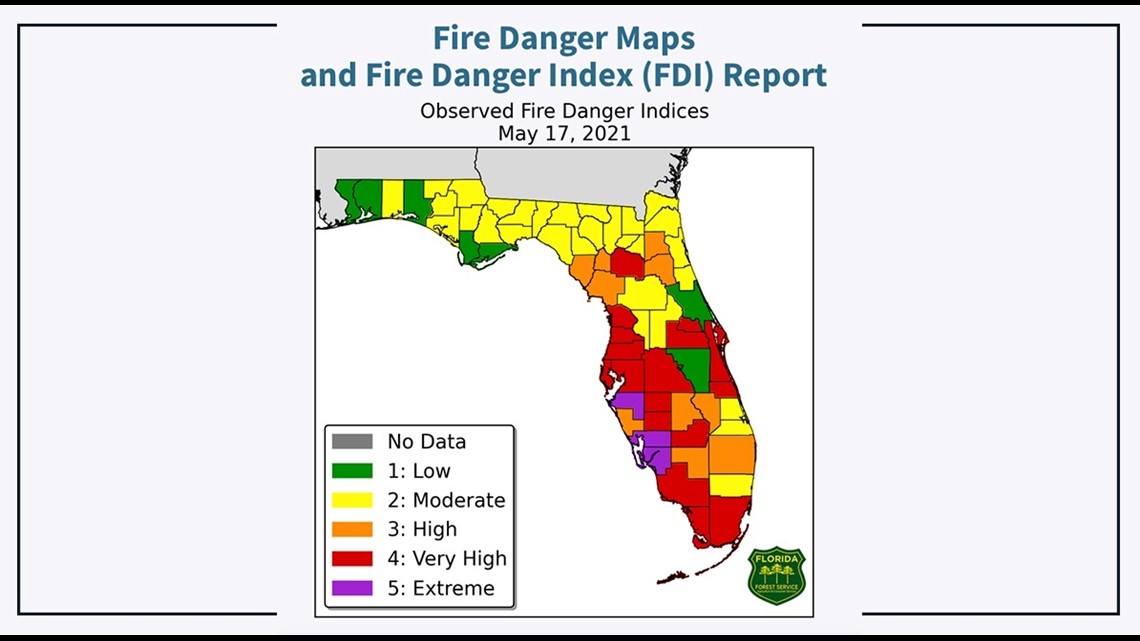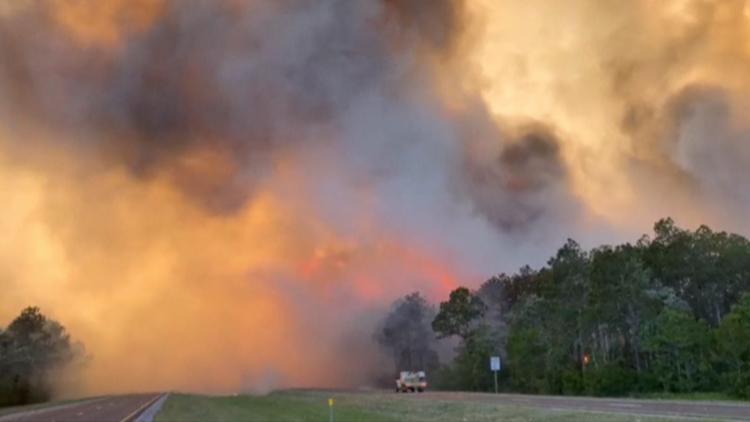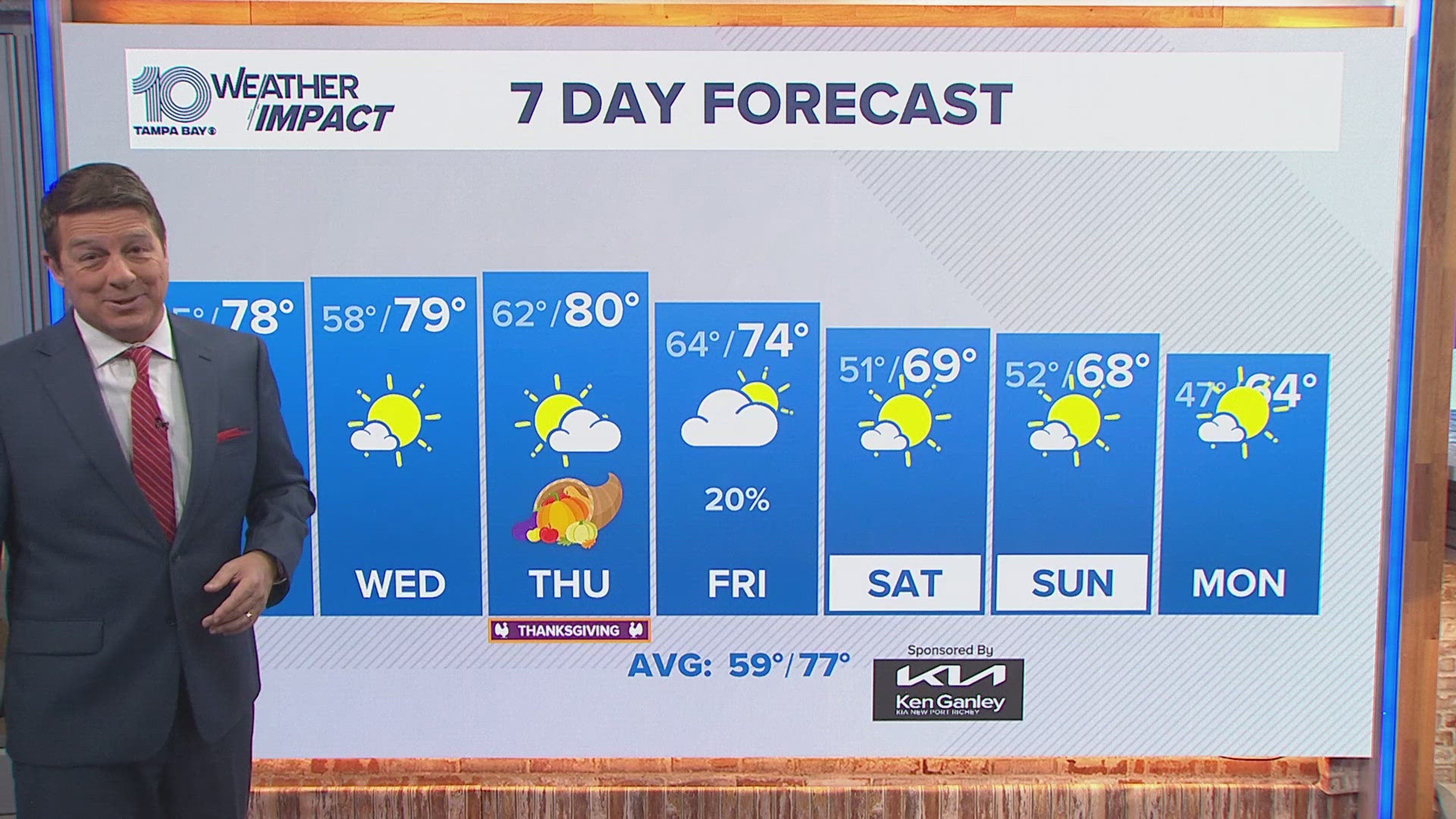While low humidity and dry, sunny days are quite enjoyable this time of year, it’s also a combination that can help fuel wildfires in Florida.
Bryan Williams, a meteorologist with the Florida Forest Service, says that the Florida fire season typically runs from about March until the beginning of the rainy season (on average, late May or early June).
The National Weather Service is responsible for notifying the public when the fire danger risk is elevated. This is done by issuing Fire Weather Watches and Red Flag Warnings.
Fire Weather Watches may be issued when Red Flag Warnings are expected within 72 hours. A Red Flag Warning is issued for weather events that may result in extreme fire behavior that will occur within 24 hours. The warnings can be issued when humidity is low, and winds are strong-- the two greatest influences in wildfire spread.
Warnings also consider the moisture content of the vegetation as well. Plants, grasses, shrubs, trees, dead leaves, and fallen pine needles can all act as fuel for fire. They’re called dry fuels. The possibility of dry lightning strikes is also considered.
After a long period of dry weather, fires can spread faster and farther. When a Red Flag Warning is issued, extreme caution is urged by all residents, because a simple spark can cause a major wildfire.
Wildfires can develop even when conditions don’t warrant a Red Flag Warning. Monday, Hillsborough County saw a 125-acre brush fire that burned in the Lithia area and had to be quickly contained and knocked down by the Hillsborough County Fire Rescue.
The Florida Department of Agriculture and Consumer Services keeps a daily fire danger map here. It’s updated every afternoon.


To see a map that shows all active wildfires in Florida, visit the Florida Forest Service website.
What other people are reading right now:
►Breaking news and weather alerts: Get the free 10 Tampa Bay app
►Stay In the Know! Sign up now for the Brightside Blend Newsletter



